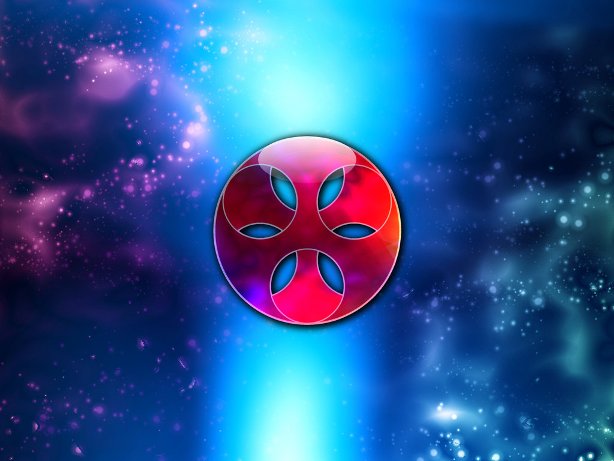From the countless “spiritual” websites, Youtube videos and infographic memes that cross our social media channels daily, to the glowingly fit, Sutra-spouting vegan teacher at our local yoga studio, the abundance of uplifting and life-improving information available to us at this time is astounding.
Even Siri can provide bits and pieces of life advice when requested.
However, spiritualisms, metaphysical truths and platitudes which are intended to uplift can also be used to shut us down in the name of higher consciousness.
I’ll never forget coming face to face with the many ways I was using my spirituality as a defense. Years ago, I walked out of a metaphysical lecture on a mind-blowing high until I discovered that my new and pricey business investment—a smartphone—was awash in a water-bottle failure at the bottom of my bag. My stomach sank. I cringed as waves of shock, panic and profound disappointment coursed through me, and I scrambled to figure out how I was going to stay in touch with people in my life and keep my business afloat. And because there was no “cloud” then, it was likely all my newly transferred contacts and photos were lost as well.
“This is a test,” I thought, trying to remain tranquil by holding on to all I had just learned about quantum physics. But that was the moment I realized that all the spiritual knowledge in the world wouldn’t circumvent my emotional experience, and that I couldn’t use it to placate myself.
1. “Everything is an illusion,” or The Myth that Metaphysical Truths are Actually Useful in Everyday Living.
When you experience loss, when your heart is broken, when an important venture is thwarted or anytime some form of devastation visits, any reference to our earthly existence as being an illusion, how The Universe is perfect, or any form of higher belief, is usually irrelevant. The drowned-phone drama was a test for sure—and it was in how resourceful I was going to be in replacing it without destroying my credit and keeping my business intact.
David, an app developer, struggled with an illusion of his own. He looked at me pleadingly, threw his hands up, and shook his long-haired mane. “I can’t believe I’m letting this upset me,” he mused, as if he should be able to rise above being impacted by a powerful tech reviewer, who diminished the project he spent the past 18 months focusing on, believing in and toiling over, by suggesting that his new product would only be utilized by “tweens at best.”
“I know I’m not supposed to let it hurt, but it does.”
David works hard at maturity and self-knowledge, but here he was using his spiritual knowledge against himself. It is bad enough to feel bad about a bad review without having to complicate it by piling on more lousy feelings. David was blaming himself for having a reaction, thinking mistakenly that if he were more evolved, he could avoid the impact. Relate? David is operating under the spell of another profound new age misconception:
2. “No one can hurt you unless you let them,” or The Myth of Invulnerability.
I see sensitive people struggle with this one all the time. Perhaps the fabled level of spiritual development where events, people, and conditions don’t hurt us does exist. But I don’t know anyone who genuinely lives in that world. Strength, as I see it, lies not in achieving a state in which people can’t hurt us, but in acknowledging that we are and can be hurt by others, and choosing to love, speak our truth and live large anyway.
At this point you may be onto the fact that in our puritan and new age culture, pain is a sign of failure. Maybe this is why true intimacy is becoming so uncool. It leaves us too vulnerable to hurt. I mean, yes—thank god for Melody Beattie, who coined for us all the term “co-dependent” in the mid 1980s, to address that needy form of disempowered relating that keeps people locked in destructive relationship patterns. And it’s great that the schmaltzy line from the movie Jerry Maguire, “You complete me” no longer represents the way we approach relationships.
However, even as we relish in the fact that each of us is whole, it seems that the pendulum against dependency is swinging too far in the direction of isolation.
Perhaps as a way to deny our true needs for contact and prevent us from the entanglements that could result in bruised hearts, people are veering towards a state of complete independence, proving we don’t need anyone else by engaging in limited, virtual, super casual and non-committal ways. The DIY or “Do-it-Yourself” culture; the sort-of-friends-with-benefits hook-ups, and the career-comes-first-cool-cat stereotype all perpetuate:
3. “You don’t need anyone” or The Myth of Independence.
While we may not need another to complete us, we still need other people for a variety of very natural and healthy reasons: we need emotional connection, we need touch and we need to share resources and skills for those things we cannot manage on our own (profound thanks to my dear hairdresser).
We need people who will be there for us in a crisis, and we need to give as well. The myth of complete independence over inter-dependence perpetuates chronic loneliness, and is a double-edged defense for those who could benefit from but are terrified of intimacy and therefore attempt to rise above it.
And speaking of intimacy, I just read a well-respected spiritual teacher’s definition of love. While I’m all for people stepping into their authority and sharing what they know, a lot of people profess things they believe, or would like to believe, stating them as fact. This teacher’s lofty and poetic treatise about love turned out to be pretty trite: love has no bounds, we are all one, and our very human and conditional ways of loving another aren’t really love, because love exists beyond all of these ways we try to express it. Is it true? Who knows. Is it useful to couples, parents, singles struggling in relationship? Not really.
In his attempt to define love, he was practicing what I call:
4. “Love is…” or The Myth of Certainty.
How does this teacher know exactly for sure what love is?
Regardless of how many years I’ve been studying human relationships from the sidelines as well as from deep within the trenches, I couldn’t attempt to define for certain what love is. What I see is that it is different for each, and it changes with time. Love is sometimes a feeling, sometimes an action, sometimes a choice, and occasionally a “walking away.”
It is always elusive, a mystery, popping up in unusual ways in unusual configurations. Parental love, teacher love, romantic love, animal love, idealized love, friendship love…so many different forms, styles and paths of loving. Who can really say what it is and isn’t on an empirical level?
These kinds of declarations—not only about Love, but also about truth, thoughts and karma attempt to reduce our complexities and untamable urges into some kind of digestible package. They negate the messiness, variety and the mystery of life and love.
Another popular myth that arises in the face of hardship has to do with responsibility. Responsibility for your actions is a mature discipline and perspective that can enlighten you to the behaviors that work for and against you. But I’m not so sure we’re responsible for circumstances outside our sphere of influence.
It’s true, there are people who move from one chaotic life event to another and you think—clearly this person thrives in a state of emergency and has something to do with the repetitive chaos in his or her life. But would you think that of the people of Nepal, or insert national tragedy here? What about someone who lost their child in some sort of accident?
I’ve heard people accuse those who have life-threatening illnesses such as MS or cancer of choosing or causing their disease—a supposedly empowering belief that seems rather cruel.
The final potentially hazardous myth is:
5. “You are responsible for everything that happens to you” or The Myth of Control.
This can be a shaming way to respond to life’s unbearably unpredictable nature.
Every human has their own ways of coping in a universe in which random, horrific things happen to both good and bad people. The Myth of Control is one way that people can feel a sense of choice and even superiority in the matter of our frailty.
When we honor our quest for knowledge but surrender our need to know everything, when we drop our need to be above needing and to maintain emotional control at all costs, we are left with humility and wonder. And, perhaps, a greater understanding of why we need each other to get through it all.
What are some other new age myths that work against the freedom they are purportedly promoting? Which of these resonate with you?
Relephant:
New Age Bullsh*t Generator.
Author: Blair Glaser
Editor: Catherine Monkman
Photo: Isabell Winter/Unsplash; cdoohinz/Deviantart



Read 45 comments and reply